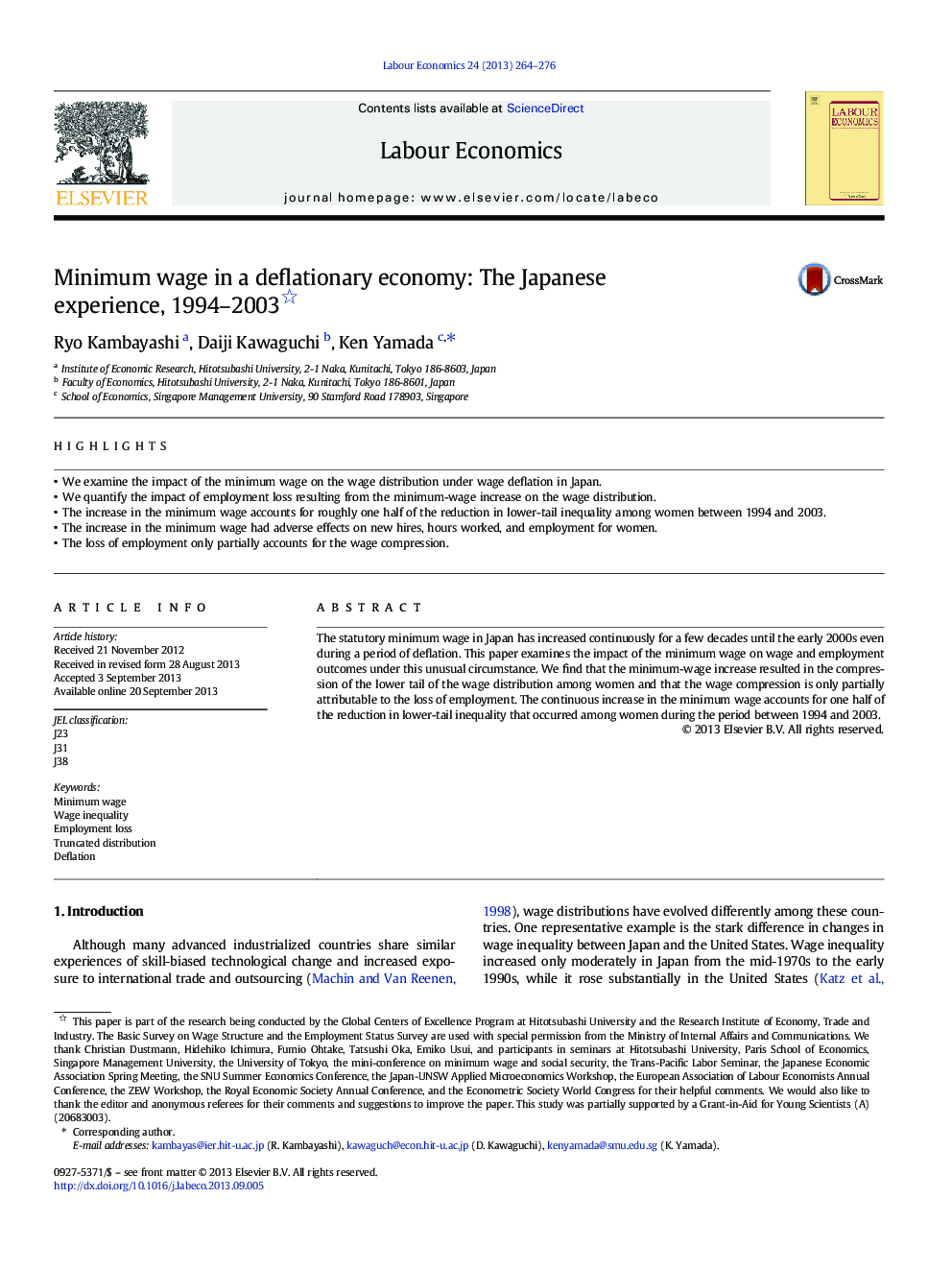| Article ID | Journal | Published Year | Pages | File Type |
|---|---|---|---|---|
| 7372420 | Labour Economics | 2013 | 13 Pages |
Abstract
The statutory minimum wage in Japan has increased continuously for a few decades until the early 2000s even during a period of deflation. This paper examines the impact of the minimum wage on wage and employment outcomes under this unusual circumstance. We find that the minimum-wage increase resulted in the compression of the lower tail of the wage distribution among women and that the wage compression is only partially attributable to the loss of employment. The continuous increase in the minimum wage accounts for one half of the reduction in lower-tail inequality that occurred among women during the period between 1994 and 2003.
Related Topics
Social Sciences and Humanities
Economics, Econometrics and Finance
Economics and Econometrics
Authors
Ryo Kambayashi, Daiji Kawaguchi, Ken Yamada,
